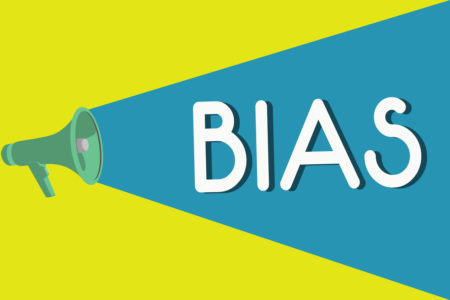
Share On Social!
Most people think they have no bias toward other people.
But we all have preconceived notions or stereotypes that—beyond our control—affect our understanding, actions, and decisions about others.
This is what experts call “implicit bias.”
Implicit bias can be good or bad. Either way, preference has enormous implications for the health of Latinos and all communities in our society.
What Is Implicit Bias?
Implicit bias is defined as the attitudes or stereotypes that affect our understanding, actions, and decisions unconsciously, according to the Kirwan Institute for the Study of Race and Ethnicity at Ohio State University.
This kind of bias happens when stereotypes influence your brain processing. Studies show that your mind decides up to 10 seconds before you realize it.
Stereotypes like these then influence your actions and judgments:
- A widely held, simplified, and essentialist belief about a specific group (race & ethnicity, language, socioeconomic status, sex, and so forth).
- A pre-judgment of a person, based on a group with which she/he may be associated.
- Tended to be set and oversimplified images or ideas.
Implicit bias shapes us all, even though we may not know.
“These biases, which encompass both favorable and unfavorable assessments, are activated involuntarily and without an individual’s awareness or intentional control,” according to the Kirwan Institute. “Residing deep in the subconscious, these biases are different from known biases that individuals may choose to conceal for social and/or political correctness. Rather, implicit biases are not accessible through introspection.”
Exposure to stereotypes make impressions on your brain and do not leave once introduced.
What Are Characteristics of Implicit Bias?
According to the Kirwan Insitute, implicit biases have 5 key characteristics including:
- Inherent biases are pervasive. Everyone possesses them, even people with avowed commitments to impartiality such as judges.
- Implicit and explicit biases are related but distinct mental constructs. They are not mutually exclusive and may even reinforce each other.
- The implicit associations we hold do not necessarily align with our stated beliefs or even reflect stances we would explicitly endorse.
- We generally tend to hold implicit biases that favor our ingroup, though research has shown that we can still hold implicit biases against our ingroup.
- Implicit biases are malleable. Our brains are incredibly complex, and the implicit associations that we have formed can be gradually unlearned through a variety of de-biasing techniques.
How Does Implicit Bias Affect Latinos?
Latinos are significantly affected by implicit racial bias.
Implicit racial bias is a response to direct and indirect information that an individual receives starting in childhood, according to the Kirwan Institute.
This leads to discrimination against people who are not members of one’ s racial group.
s racial group.
Due to implicit bias:
- Latino men are much less likely to receive optimal treatment for high-risk prostate cancer than White men. Uninsured non-Latino white men were 37% less likely to receive definitive treatment than those with insurance. Uninsured Latinos were also 66% less likely to undergo definitive treatment compared to their insured counterparts.
- Latinas and other pregnant women of color face discrimination from healthcare providers. This is due not only due to their race, but also their socioeconomic background.
- White male physicians are less likely to prescribe pain medications to black patients than white patients.
And that’s just bias in healthcare!
Latinos are also more likely to be pulled over when driving and are less likely to be hired for a job.
Why Should We Care About Implicit Bias?
Implicit biases are dangerous and adversely set the long-term trajectory for many.
Implicit bias has the power to influence policies and conditions. This can lead to catastrophic consequences.
For example, the wealth divide that is attributed to systematic discriminatory treatment of communities of color, such as massive federal investments that ultimately built the post-World War II middle class (i.e., New Deal & the GI Bill of 1944, that intentionally excluded communities of color).
Another example includes the criminal justice system. Implicit racial bias can harmfully influence verdicts made by judges. Studies on capital punishment have shown that killers of White victims are more likely to be penalized with the death penalty than are killers of Black victims and that Black defendants are more likely than White defendants to receive the death penalty.
It’s important to look at the bigger picture: implicit bias affects everything including health, well-being, education, homeownership and wealth to name a few.
How Can We Address Implicit Bias
The good news is you can “rewire” implicit bias toward more compassion for others.
Download the free Salud America! “Find Out If You Have Implicit Bias and What to Do Next” Action Pack.
This will guide you to see if you have implicit bias, reflect and learn from others who have overcome their own implicit bias, and encourage others to learn about implicit bias, too.
The Action Pack was created by Dr. Amelie G. Ramirez, director of Salud America! at UT Health San Antonio.
Explore More:
Overcoming Harmful BiasesBy The Numbers
3
Big Excuses
people use to justify discriminatory behavior



